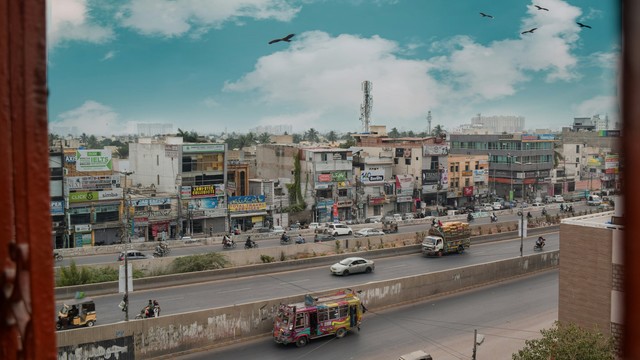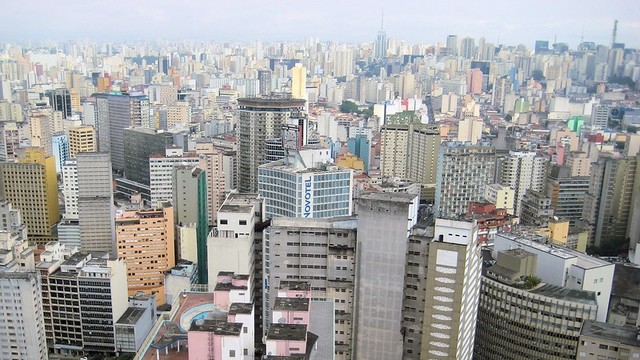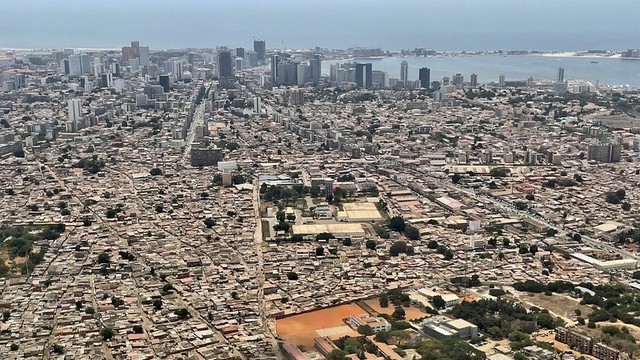Climate chasm: the yawning gap between policy and reality
The reality of life for climate-impacted urban dwellers in Bangladesh is far removed from what national policymakers and urban planners envisage for them. A new vision – incorporating local knowledge – is desperately needed to confront climate injustices.



Korail slum in Dhaka, Bangladesh (Photo: Mohammad Tauheed, via Flickr, CC BY-NC 2.0)
The government of Bangladesh routinely highlights its disproportionately impacted global position to emphasise victimhood: “We are facing climate disasters because of you!”. The country is celebrated in the international arena and media as a ‘climate success’ offering a ‘model for climate migration’ and an ‘example to follow’.
Yet this alleged success is not reflected in the growing informal settlements where climate-impacted urban dwellers find themselves unsupported in securing homes, lives, services and livelihoods.
Understanding their everyday predicaments through a climate justice lens reveals how international climate success does not advance justice locally for climate-impacted communities.
Climate justice is a framework emerging from grassroots mobilisations, highlighting the connection between human rights, uneven development, intersectional social inequities, structural violence and climate change – from global to local scale.
In Bangladesh, millions of urban climate-impacted dwellers get little support – and often face highly aggressive displacement through fire and eviction. Part and parcel of the unfolding climate injustice picture is that there are no comprehensive statistics to back it up.
However, according to the Intergovernmental Panel on Climate Change’s (IPCC’s) sixth assessment report, over four million people were displaced due to climate change in Bangladesh as of 2019. And it’s clear from multiple research reports that the spatial trend of rural-to-urban migration exceeds any other movement pattern in the country. That means displaced households and communities predominantly move to urban areas and find housing in informal settlements.
Dhaka, one of our field sites, hosts around 24% of the country’s urban informal settlements, with more than a third of the city’s population living there, including climate-displaced people from all over Bangladesh.
In this context, we find terms such as ‘economic migrant’ and ‘climate migrant’ limiting for reasons elaborated in our paper. So we use ‘climate-impacted dwellers’ to refer to all residents who engage in the daily struggle against the adverse impacts of climate in their original homes, and in their arrival destinations – urban informal settlements.
Salma’s story
Salma, one of many climate-impacted dwellers, shared in her own words:
“We moved from Bhola. Our house was close to the river. We had to move two times because of the river. I lived with my in-laws and my husband worked in Dhaka. The first time the house came down, the chairman gave us tin, bamboo, and another piece of land to live on.
“But that land was close to the river too. And that house came down after 4-5 months. It was scary – the sounds of the river. You could see big trees falling in. Then we went to the (union) member and he let us stay in his guest room for 2-3 weeks. He fed us too.
But he didn’t want us there, we could tell. We can’t demand too much from them (the union council). They say, ‘Are you the only ones facing this? There are so many others we have to look after’.
“We all moved to Dhaka then. That was five years ago. What’s the point of building homes with children close to the river and moving over and over? In Korail, I live with my husband, a nine-year-old child, and my mother-in-law sometimes stays with us.
"I took an NGO loan to buy a house here but the fire burned it down. I couldn’t rebuild the house and still have to pay the loan. Now I live on the lakeside and when it rains, the place is waterlogged. Who wants to live in the city? We lived through two fires already, and have a debt to pay.”
People move, policies don’t
Several national climate policies and plans recognise that climate migrants have been moving to urban areas and concentrating in informal settlements, as these are the only places they can find affordable housing and work.
These policies propose in situ upgrading and collective tenure rights for informal settlements. In case of eviction for legitimate reasons, they provide guidelines for proper rehabilitation of informal settlement dwellers, compensation and facilitation of appropriate low-cost housing. So far, so OK…
But in the real world policies promising support seldom lead to improvements in informal settlements, where climate-impacted dwellers remain unsupported. The aspirations for informal settlement residents promoted in national plans are ignored in urban plans.
Forced displacement is even touted as part of the solution. For example the detailed area plan for Bangladesh’s capital, Dhaka, ignores existing informal settlements and aims to create low-income housing in the urban peripheries, far from people’s jobs and workplaces. In order to implement the new plan, urban planning authorities are also taking steps to evict informal settlement dwellers.
Climate injustice persists in Bangladesh despite national recognition of climate migrants and climate vulnerabilities in informal settlements. The injustice is baked into the urban planning process as city authorities ignore and delegitimise on-the-ground initiatives and the community knowledge that makes the city more resilient for its majority.
Using local knowledge for climate resilience
For many decades, settlement dwellers have engaged in solidarity initiatives, adaptation efforts and collective placemaking to battle various hazards. In Salma’s case, after floods and fires, entire swathes of the settlement were rebuilt under such initiatives to provide greater structural integrity. Residents achieved this, with or without the support of municipal and planning authorities.
During COVID-19 lockdowns and in the continuing unemployment crisis and food insecurities, dwellers pooled resources to support hungry families and engaged in urban farming to feed themselves and share fresh vegetables with neighbours. Far from learning from them, city planning authorities do not even acknowledge these assets that make the city resilient for its majority.
Urban climate adaptation and overall resilience cannot be seen as separate from the fates of informal settlements in cities. Bangladesh continues to promote informal settlement upgrading nationally but excludes them and their residents in urban plans.
Planning entities must proactively learn from climate-impacted dwellers in informal settlements to allow for more nuanced policies and actions. At the international scale, while rich, developed, polluting nations continue to shirk their responsibilities, it is also important to move beyond a ‘victim’s tale’ and question the state complicities within Bangladesh that further climate injustice.
Simply adding aid resources in this policy landscape will not translate to real, on-the-ground change for the most vulnerable in the climate-affected spectrum.
In order to make our struggles for climate justice meaningful, we must translate visions and policies into realities for climate-impacted dwellers in urban Bangladesh and beyond.



